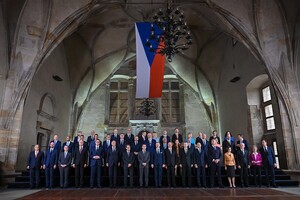Within the framework of the EPC, heads of state and government from all over Europe can for the first time discuss topics of concern to them without an agenda and the need to make decisions based on the results of the discussions.

Summit of the European Political Community (European Political Community — EPC), which is held in Prague, German Chancellor Olaf Scholz considers a “great innovation” that will benefit peace and security, reports DW.
In his opinion, it complements such negotiations formats such as the Council of Europe and the Organization for Security and Cooperation in Europe (OSCE).
Scholz called it a positive point that now heads of state and government from all over Europe can for the first time discuss topics of concern without order agenda and the need to make decisions based on the results of the discussions.
However, even before the start of the summit, the contradictions between the EU countries regarding the problem of energy security were once again sharply reflected. In particular, Polish Prime Minister Mateusz Morawiecki criticized the German government. “It is unacceptable that the energy policy of the EU is dictated by Germany,” he said.
Earlier, Berlin expressed disagreement with the demand of Poland and 14 other EU countries to limit the price of gas from Norway and the USA. German Economy Minister Robert Habeck explained that the introduction of a price ceiling could lead to gas shortages, as Norway, the United States and Algeria will sell fuel in Asia at higher prices as a result.
Read also: Zelenskyi: Ukraine – this is only the first battlefield on which Russia entered, and it is in Ukraine that it must be defeated. In addition to the 27 EU countries, it also includes Great Britain, Turkey, Ukraine, the countries of the Western Balkans, Armenia and Azerbaijan, and a number of other countries. Russia and Belarus were not invited to the meeting. The main topics of the forum are issues of security and energy policy.




